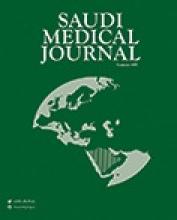A bezoar is a gastrointestinal mass developed via the accumulation and hardening of undigested or partially digested materials within the digestive tract. While often seen in the stomach, bezoars are rarely observed in the colon. Although many studies have reported that whole-grain foods have a positive effect on intestinal functions because of their high fiber content,1 a very limited number of case presentations have reported that excessive intake can cause intestinal obstruction.2 Here, we present the case of 30-year-old man who presented with colonic obstruction caused by excessive intake of a Turkish cracked-wheat food product referred to as dövme. He was admitted to our hospital complaining of nausea, vomiting, distension, and constipation. Physical examination revealed stomach distension and voluntary defence in all quadrants. Review of the history and intake report revealed current use of an antipsychotic medication to treat previously diagnosed schizophrenia, and daily consumption of approximately one kg of dövme, a cracked-wheat food product. Laboratory testing yielded normal hemogram and biochemical values and physical rectal examination revealed an empty rectum ampulla. However, a review of plain abdominal x-rays revealed colonic air-fluid levels, while abdominal CT revealed marked distention, air-fluid levels, and most notably, foreign bodies in the sigmoid colon and rectum that appeared to be the cause of the obstruction (Figure 1). Analysis of these findings together with review of his history indicated that the cause of these lesions was excessive consumption of dövme. Successful treatment by administration of multiple enemas resulted in the passing of stool in a toothpaste-like form containing many undigested dövme particles and of gas.
Abdominal CT revealing marked distention and air-fluid levels, sigmoid colon, and foreign bodies in the colon and rectum.
Bezoars are classified according to the materials of which they are composed. The most common types are phytobezoars, which are composed of vegetable fiber or plant material, followed by trichobezoars, which are composed of ingested human hair; medication bezoars, which are composed of accumulated masses of medication; lactobezoars, which are composed of undigested milk consumed by premature or full-term infants; and polybezoars, which are composed of less frequently consumed materials.3 Bezoars account for only 0.4-4% of all intestinal obstructions, and are an even rarer cause of bowel obstruction in the colon.4 Previous gastric surgery, poor dentition, and excessive fiber intake are risk factors for bezoar formation.2 Under CT, the recommended imaging technique for detection, a bezoar appear as an oval mass with sharp edges filled with air bubbles. When reviewing the CT results, the point of obstruction of suspected bezoars should be identified, and a detailed review for the detection of additional intestinal and gastric bezoars should be conducted to ensure proper diagnosis and treatment.3
Bezoar treatment is primarily conservative, consisting of enema administration and manual disimpaction. If conservative treatment fails, endoscopic removal, and in severe cases, surgery may be required.4 An important consideration is that approximately 10% of patients who present with bezoars show psychiatric abnormalities or mental retardation, indicating that psychiatric evaluation and treatment are necessary to prevent recurrence in a significant proportion.5 Such was the case of the patient described here, who presented with a history of psychiatric diagnosis and antipsychotic medication intake. Accordingly, he was transferred to the psychiatric clinic after the ileus had regressed.
The cause of his ileus was determined to be excessive consumption of dövme, a type of whole grain used in some foods, particularly cereals, soups, and salads. Dövme is produced by boiling and drying whole wheat or buckwheat before removing the kernel using certain threshing techniques. Since cracked-wheat dövme is made from whole-wheat berries, it contains more fiber than grain products containing greater amounts of the wheat bran and/or germ. Normally, consumption of fibrous foods is recommended as a primary treatment for the prevention and treatment of constipation. Fiber, particularly insoluble fiber, including that in wheat, increases the size and weight of the feces by increasing fluid retention in the bowel, thereby increasing the size of the feces, reducing intestinal transit time, and, thus, preventing constipation.1 Despite these beneficial effects, several reports have attributed constipation and bezoar formation in patients with previous gastric surgery to consumption of fibrous food, as such patients suffer from poor digestion of fiber.3 As the case presented here had not undergone surgery that could have affected digestion, we hypothesize that the trigger for ileus was the anticholinergic-efficient antipsychotic medication that the patient was taking.
In conclusion, the review of this case indicates excessive intake of whole-wheat food products may cause ileus and bezoar formation, particularly in patients with psychiatric disorders and/or organic predisposing factors. Therefore, ileus should be considered in the differential diagnosis of these patient populations, and CT be performed to distinguish it from other conditions that may cause obstruction. Primary treatment of ileus and bezoar formation should be conservative, and laparotomy should be avoided unless absolutely necessary.
Related Articles
Abdel-Rahman NH, Ahmed AM. An unusual case of bezoar from Sudan. Saudi Med J 2014; 35: 189-191.
Kutun S, Ulucanlar H, Celik A, Cure E, Kockar MC, Cetin A. Effects of octreotide on healing of mechanical ileus in rats. Saudi Med J 2008; 29: 539-543.
Coskun F, Bozkurt S, Ersoy O. An unusual etiology of epigastric mass. Saudi Med J 2005; 26: 114-117.
Footnotes
Disclosure. Authors have no conflict of interests, and the work was not supported or funded by any drug company.
- Received August 28, 2014.
- Accepted December 22, 2014.
- Copyright: © Saudi Medical Journal
This is an open-access article distributed under the terms of the Creative Commons Attribution-Noncommercial-Share Alike 3.0 Unported, which permits unrestricted use, distribution, and reproduction in any medium, provided the original work is properly cited.







